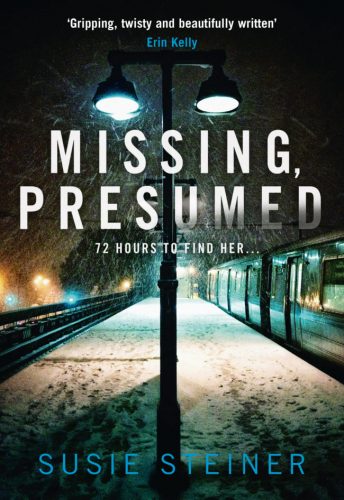
‘Two years of internet dating. It’s fair to say they haven’t flown by.’
Meet DS Manon Bradshaw: single, lonely, funny and clever. Steiner introduces us to Manon while she’s on her first, and last, date with Brian – or was it Keith? Either way, the sex was as dull as the conversation, leaving our lonely detective to fall asleep to the soothing burble of her illicit police radio, ‘the sound of vigilance…human kindness in action, protecting the good against the bad’.
What’s it about?
A MISSING GIRL
Edith Hind is gone, leaving just her coat, a smear of blood and a half-open door.
A DESPERATE FAMILY
Each of her friends and relatives has a version of the truth. But none quite adds up.
A DETECTIVE AT BREAKING POINT
The press grows hungrier by the day. Can DS Manon Bradshaw fend them off, before a missing persons case becomes a murder investigation?
What’s it like?
Surprisingly slow initially (it takes two chapters for Edith to be discovered missing), then deeply absorbing, and finally shocking. This is a study of people, not of a crime; read it for the dark humour and psychological insight, while trying not to wonder what your loved ones are hiding from you…
This is a proper police procedural, full of little details about the scaling up and down of ongoing investigations, and although Manon cares about her job, it’s pleasant to read a crime novel where the detective is only investigating the crime and isn’t somehow involved in it. She’s on an emotional roller coaster, it’s true, but that has everything to do with her love life and her estranged family and very little to do with her caseload.
Ultimately, although Edith Hind’s disappearance is the main focus of the blurb and the plot, I found certain fringe characters held far more of my interest; Steiner quietly makes an excellent point about where the police and the media choose to deploy their many resources and how prison can affect people. Edith, meanwhile, never becomes more than a spoilt, privileged brat.
Final thoughts
‘Missing, Presumed’ is a solid police procedural which introduces Manon Bradshaw in all her messy, chaotic, kind glory, and establishes her policing companions and family preoccupations.
Here we have classic Manon, talking to a man she’s seeing:
‘I went out with someone with a son once,’ he says. ‘Didn’t last long.’
‘That probably wasn’t the son’s fault,’ she says, before she’s had time to think.
I did enjoy Manon’s forthrightness and her vulnerability, and was entertained by her relationship with her sister and fellow police officers. I imagine I will enjoy reading about Manon’s next outing, in ‘Person’s Unknown’, though I already think I will prefer this book, within which Manon is leading a simpler life!
Fundamentally, I’m always more interested in the crime than the investigating officers, but Steiner’s writing is very engaging and I did really enjoy this.
An excellent crime novel for readers who like all their ‘i’s dotted and ‘t’s crossed by the end.


